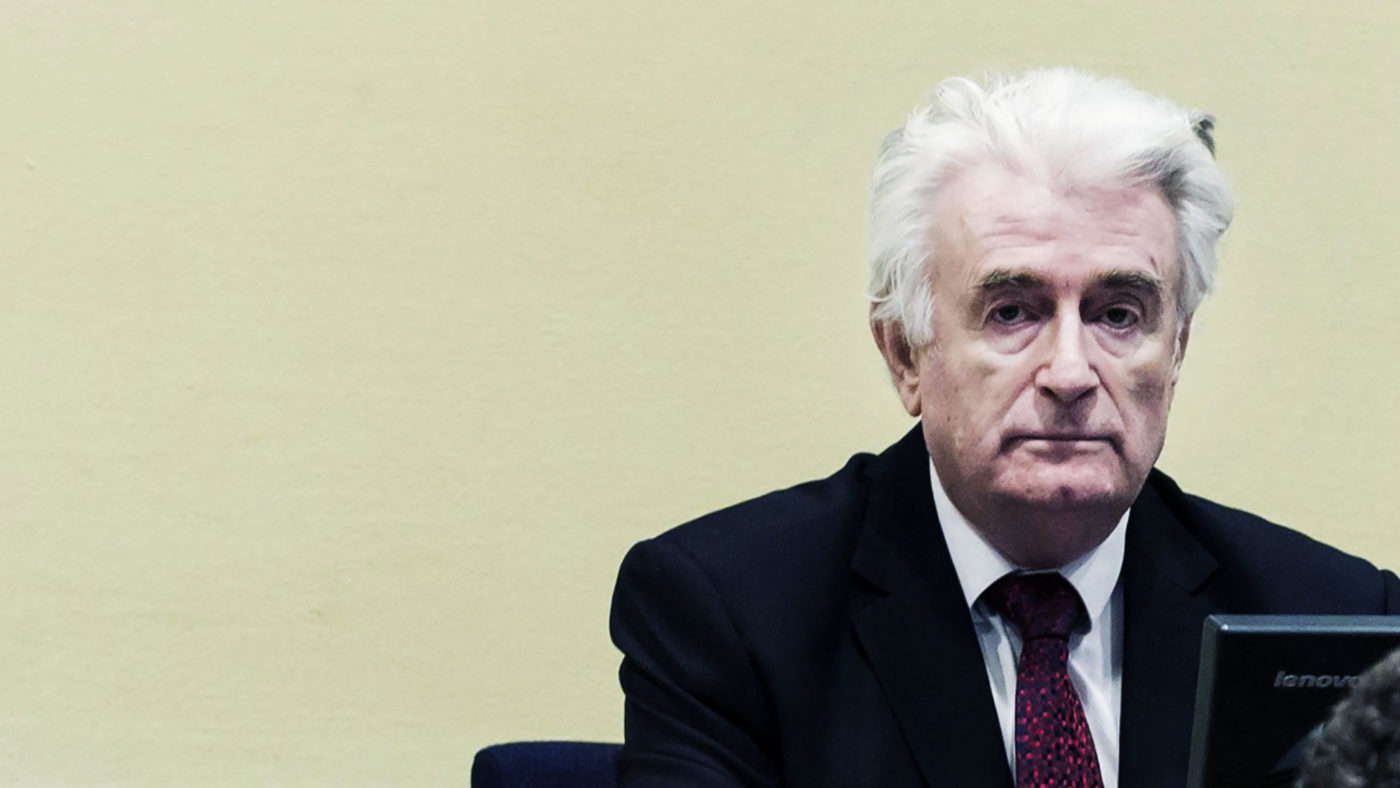The psychology of the mass murderer holds a gruesome fascination for the general reader. The subject makes good journalistic copy. To allow that interest to obscure the depravity of the crimes is a moral failing. That’s precisely what the New York Times did this week in publishing a piece by Jessica Stern, an American scholar of terrorism, titled: “Why Did I Let a Convicted War Criminal Practice Energy Healing on Me? My 48 hours alone with Radovan Karadzic.”
The article has caused a minor scandal that ought to become a major one. It is excerpted from Stern’s new book, published by HarperCollins, My War Criminal: Personal Encounters With an Architect of Genocide. I haven’t read the book but, on a trip to Sarajevo a few months ago, I was warned about it by a leading British historian of the Balkans.
If the article is typical of the book’s theme, I can see why he was worried. Radovan Karadzic, the former Bosnian Serb leader, is serving life imprisonment for crimes that include the genocide of 8,000 Bosnian Muslim men and boys at Srebrenica in July 1995, and the indiscriminate shelling of Sarajevo during the siege of the city from 1992 to 1996. These are unfathomable acts of wickedness.
With Stern’s article, however, we get the human side of Karadzic. It begins with a sentence of such bathos that it’s hard not to laugh: “There were several times during our discussions that Radovan Karadzic wanted to demonstrate his skill at bioenergetic healing.” And so it goes on, in a similar vein. I don’t doubt that Stern is a sensitive and decent person, but this is an indecent depiction of evil. She writes: “This is dangerous work, the work I do, studying violent men or men who incite violence. I have to listen without judgment. I have to yield, if only temporarily, to their image of themselves.”
Stern’s self-congratulation on her courage and objectivity is what makes this farrago so foul. Though without explicit reference to it, her account seems to be modelled on Hannah Arendt’s famous work Eichmann in Jerusalem: A Report on the Banality of Evil, on the trial of the architect of the Holocaust. Arendt’s book is morally problematic and has an inflated reputation, but she was a major political thinker. Stern is – how can I put this? – not.
On the evidence of this article, she scarcely has a thought in her head about the devastation that Karadzic has wreaked. It’s all about her, not about his victims. Hence she can write, of Karadzic’s ludicrous offer to show her how his pseudoscientific healing remedies work: “I reminded myself that although convicted of genocide, he has never been suspected of committing violent acts himself. I did not think he would strangle me. But I knew that the guard on duty, who was supposed to be monitoring us and keeping me safe, was sitting at a desk, idly flipping through the pages of a magazine.”
Since the article appeared, Stern has issued a confused apology for it. And I have to be fair to the NYT and acknowledge that it yesterday published a caustic review of Stern’s book by its critic Jennifer Szalai, who knows enough about foreign affairs to see that the author was gulled. She writes: “Stern says she isn’t trying to deny a genocide, nor is she trying to redeem Karadzic. But in her attempts to ‘follow his moral logic,’ she entertains his tortured excuses and grotesque fantasies.”
That’s well said but it doesn’t redeem either the newspaper or the publisher of Stern’s work. It is the second very public indication in recent months (the first being the award of, so help me, the Nobel Prize for Literature to the Austrian writer Peter Handke, for work that exculpates the Serb campaign of aggression) that the most atrocious crimes committed in Europe since 1945 are in danger of being not so much forgotten as relativised.
Karadzic, a man of colossal vanity, cares very much what is said about him in western media. Once treated, and even feted, as a serious diplomatic figure in Western capitals, he is a thug and an intellectual mediocrity. During his long arraignment at The Hague, he issued a furious condemnation of journalists including Christiane Amanpour of CNN and the former BBC war correspondent Martin Bell (my uncle, who gave evidence in the trial) who he blamed for blackening his reputation.
It’s vital that, with the passing of years, public awareness of the horrors of the wars in the former Yugoslavia in the 1990s should become no less acute. The peoples of Bosnia and Kosovo, who were victims of a deranged genocidal campaign by Slobodan Milosevic to create a Greater Serbia, have suffered quite enough Western indifference to their plight. Let’s not insult them too, with stuff like this.
Click here to subscribe to our daily briefing – the best pieces from CapX and across the web.
CapX depends on the generosity of its readers. If you value what we do, please consider making a donation.


